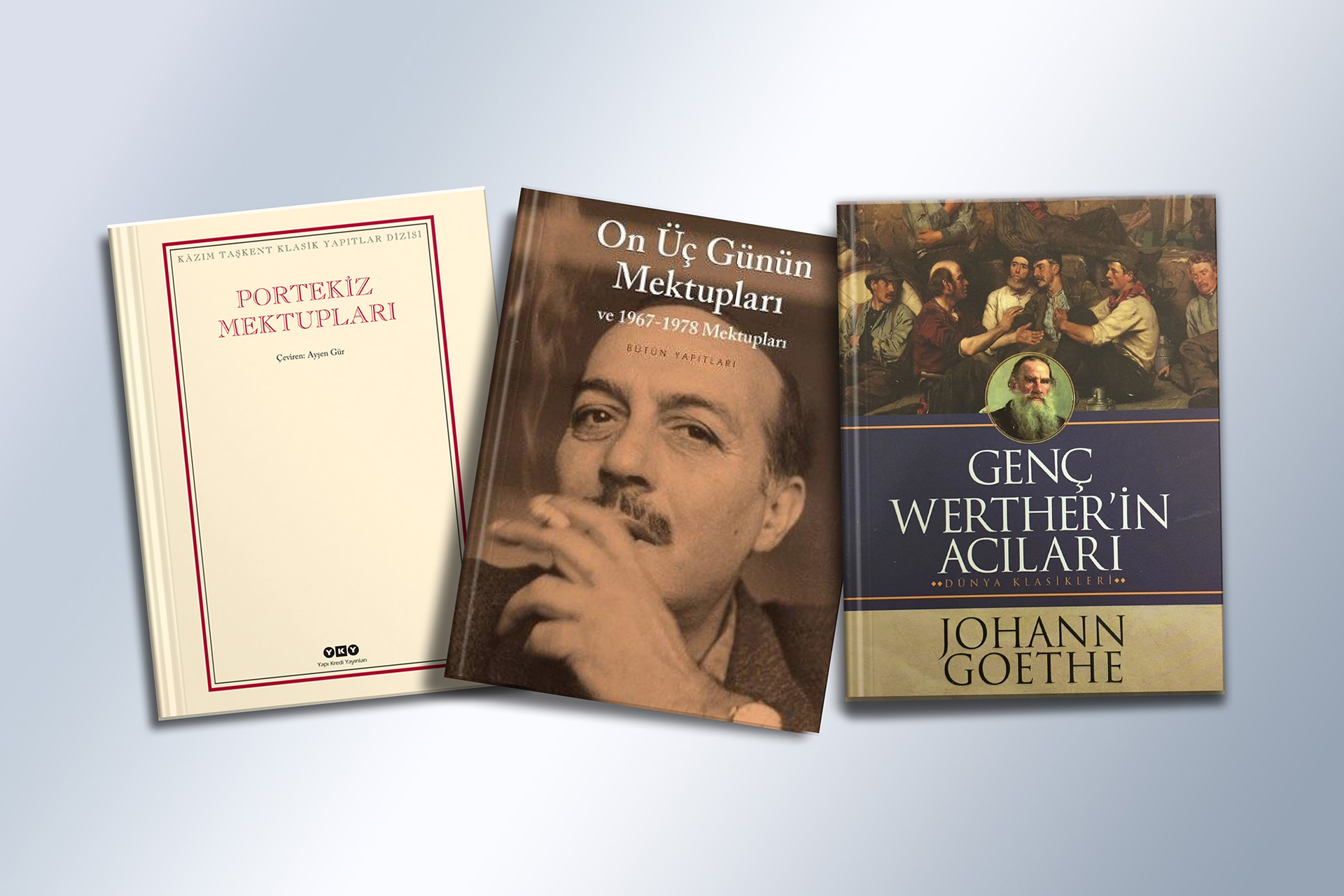
“How hard it is to make up one’s mind to doubt for any time the sincerity of those one loves!” said Mariana in Letters of a Portuguese Nun. “One sometimes can make mistakes caused by loving a lot. They bung the loved one up while firmly embracing what they love. Love gets rough at some point” said Cemal Süreya in Letters of Thirteen Days, which he wrote to his wife. “It is our own heart which is the sole source of everything of our strength, happiness, and misery,” said Young Werther in his book, in which he describes his sorrows.
I cried as I read these letters, and I read them as I cried. Each one of them is letters I wish they were written to me… I have never received such a letter in my life, but I have not written it either…
I have never been loved like in novels, but I have not loved like that actually…
Since February is here, I cannot think of a better gift for the Valentine’s Day than these letters.
Okay, maybe they were not written to us, and we did not write them to anyone, but what they wrote can be given away to our loved ones…
Letters of a Portuguese Nun (Lettres Portugaises)
The real author of these letters has not been found in spite of all these centuries. They might have been written by Mariana Alcoforado, a nun who lived in Portugal in the mid-1600s, or by de Guilleragues, a French Viscount… (who was sent to Istanbul in 1677 as an ambassador of Louis XIV, lived in Palais de France in Beyoğlu, and died in Istanbul in 1685.)
The book, which divides the literati into two as those who support ‘Guilleragues’ or ‘Mariana’ after World War II, consists of five letters sent by a nun from the monastery after her love affair in Portugal with a member of the French nobility. Mariana asks her lover, “How can it be that the memories of moments so sweet become so bitter?”
These lines that hold all aspects of love have been admired around the world as lines from a masterpiece for centuries.
The book is perhaps best described by its translator, Ayşen Gür, who says, “Letters of a Portuguese Nun show how unrequited love paralyses you first, then drives you crazy, and drags you back and forth between love and hatred, compassion and doubt, life and death.”

Letters of Thirteen Days
Cemal Süreya wrote these thirteen letters to his wife, Zuhal Seber, who was hospitalised in 1972. Süreya brought Mrs Seber one letter every day during her thirteen-day stay in the hospital and probably did not plan for the letters to be printed one day. One year after Süreya’s death, Mrs Seber brought these love letters, put into words with no premeditation, to their mutual friend, Erdal Öz, for publication. And so we have thirteen days of Cemal Süreya’s life in our hands.
“Only when I am with you do I have any strength. I would not mean a thing if it weren’t for you, love me,” the letters say, where Süreya talks of his love and admiration for his wife, his dreams, and his daily life.

The Sorrows of Young Werther
An immortal piece of work by Goethe. It was written in 1774. The years when love is respected and loving is considered a virtue…
The Sorrows of Young Werther (Die Leiden des jungen Werthers), which was written in two weeks, is an epistolary novel. We read the desperate and painful love of young Werther for Lotte from his letters to his imaginary friend, Wilhelm.
Letters written by Goethe are of course wrapped up with philosophy, art and poetry.
The literati say that Goethe wrote these letters based on his own life.
Werther asks “Must it ever be thus,—that the source of our happiness must also be the fountain of our misery?” It is a fair question, but unfortunately no answer has been found in the past 400 years.



